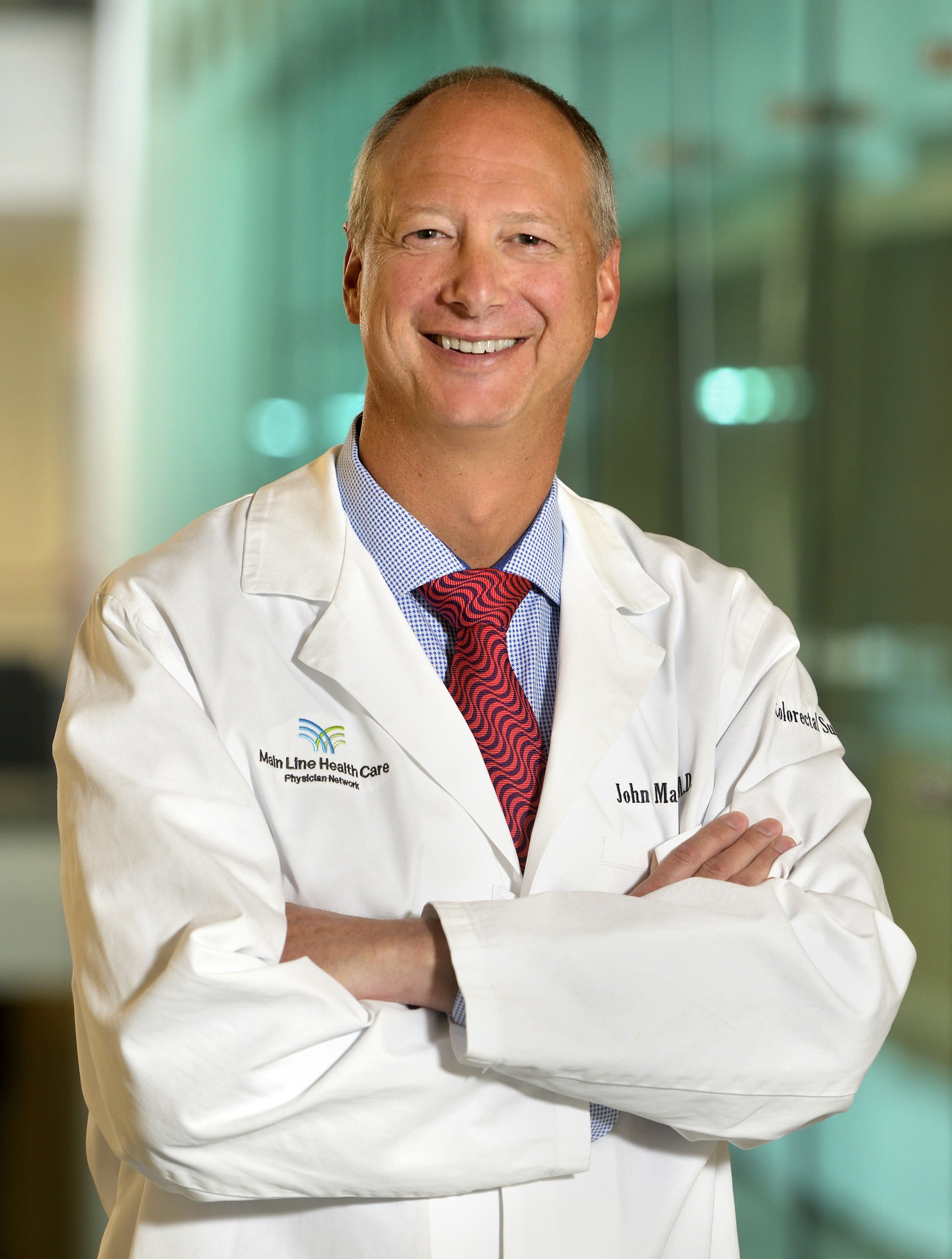
Internationally Recognized Leaders in Colorectal Surgical Care
Two generations of colorectal surgical care, research, technical innovation, and professional leadership.
Meet the Team
-

John H Marks, MD, FACS, FASCRS
DIRECTOR
Dr. Marks is board certified in both General Surgery and Colorectal Surgery. He has performed over 2000 laparoscopic colorectal operations and has the largest colorectal single-port robot operative experience in the United States. Building on a commitment to preserving function in patients with rectal cancer through a program of integrated care to preserve the anal sphincter, his academic and professional signature is achieving proven superior outcomes in the least invasive ways possible.
-

Henry Schoonyoung, MD, FACS, FASCRS
ASSOCIATE
Dr. Schoonyoung is board certified in both General Surgery and Colorectal Surgery and a graduate of the Lankenau general surgery residency. After completing a colorectal surgery residency and broadening his teaching and practice experience in other healthcare systems, he seized the opportunity in 2015 to join Dr. Marks and return to Main Line Health. More recently, he is the recipient of teaching awards, recognized regionally as a Top Doc, and is the principal investigator in a clinical trial of a novel, portable, single-port robot.

Call +1 610.645.9093 or click the button to schedule an appointment

Our Clinical Fellow and Research Team Members
-

Analena Alcabes, MD
CLINICAL FELLOW 2023-2024
-

Thais Reif de Paula, MD
RESEARCH FELLOW
-

Suraj Chetty, B.S.
RESEARCH ASSISTANT 2023-2024
-

Danny HJ Heo, B.S.
ADMINISTRATIVE ASSISTANT
Our Services
-
Few centers have the scope of experience treating rectal cancer that ours does. Our decades-long program of multimodal therapy and technical innovation help us achieve superior sphincter preservation rates, unsurpassed low local recurrence rates, and performance of over 95% of our operations using minimally invasive approaches. Currently, we have the country’s largest experience with the single-port robot for colorectal operations and are the first site to conduct a Phase II clinical trial with this equipment.
-
As with rectal cancer, we are able to apply principles of combination therapy to think outside the box when patients present with complicated colon cancer: bulky tumors, unusual variants, and recurrent disease. Each patient’s condition is considered individually to unlock possibilities that might not be considered in practices that don’t have the background and perspective we do.
-
Our surgeons perform colonoscopy and work in an integrated fashion with gastroenterologists, our genetics service, medical and radiation oncologists, gastrointestinal radiologists, and pathologists to coordinate surveillance and determine when and if surgery is indicated.
-
We partner with our outstanding radiation oncology colleagues at Lankenau Medical Center or from your home community if you are traveling to see us for a consultation or treatment. Even when radiation successfully treats anal cancer, surgical follow-up is important for helping monitor for recurrences and addressing radiation treatment effects.
-
Our minimally invasive surgical techniques, including transanal polyp or tumor removal and colonoscopy skills give us a larger repertoire of methods for treating polyps.
-
All of our physician team members are skilled endoscopists and can perform your colonoscopy for any indication—screening, surveillance, diagnostic (to investigate a problem), or therapeutic (to remove a polyp, for example).
-
These days, the options for treatment of diverticulitis are broader. We take into consideration many details of the course of the illness to help derive a tailored plan that optimizes the opportunity for a minimally invasive operation performed in a single stage that avoids the need for bowel diversion (a stoma). Most often, we can perform a laparoscopic operation even when there have been complications or prior surgery.
-
The same team and specialty integration that is key to our advances in colorectal cancer care underscores our treatment of people with ulcerative colitis and Crohn disease whether it is primarily colonic disease (UC and Crohn) or perianal problems (Crohn).
-
The effects of low blood flow or blockage of key vessels carrying blood to or away from the colon can cause acute, life-threatening problems or secondary effects like scar tissue that narrows the bowel. Surgery is sometimes necessary acutely or to resolve the consequences of an ischemic episode.
-
We perform the full range of pelvic floor studies to help identify the cause of incontinence which can be a structural, bowel motility, or a neurologic issue. Our treatment recommendations are tailored to address the root cause. Among other treatment modalities, we place sacral nerve stimulators in patients who may benefit from this.
-
We have experience with a full range of hemorrhoid therapies, from in-office options to day-surgery procedures such as hemorhoidal artery ligation, stapled hemorrhoidopexy, and excision.
-
The diagnosis of these and other common anorectal problems can often be made in the first office visit and treatment initiated.
-
Sometimes stoma closure is planned once healing from an initial procedure has occurred, but sometimes people have a rectal remnant that their surgeon believed would be hard to reconnect. Our extensive operative work in the deep pelvis gives us some options for “rectal rescue” to re-establish bowel continuity and close what what thought to be a permanent stoma.
-
Having a fresh look at a complex surgical scenario can often help clarify the problems and treatment options and give more peace of mind about one of life’s monumental decisions. Having a broad repertoire of surgical approaches, we often will see a solution that other surgeons have not, like the old saying, “If you only have a hammer, everything looks like a nail.” Even when an alternative is not offered, hearing agreement among expert opinions can be reassuring.

Our Facility
The Colorectal Center at Lankenau Medical Center
A state-of-the-art center designed to enable the integration of clinical excellence, technical innovation, and research in every patient visit.
Our Inpatient Team
Our ability to do amazing work for patients depends on cohesive teams in the office, operating room, and inpatient ward at the Lankenau Medical Center Colorectal Unit

Marks Colorectal Surgical Research Foundation
Learn more about the research foundation and how you can help.
